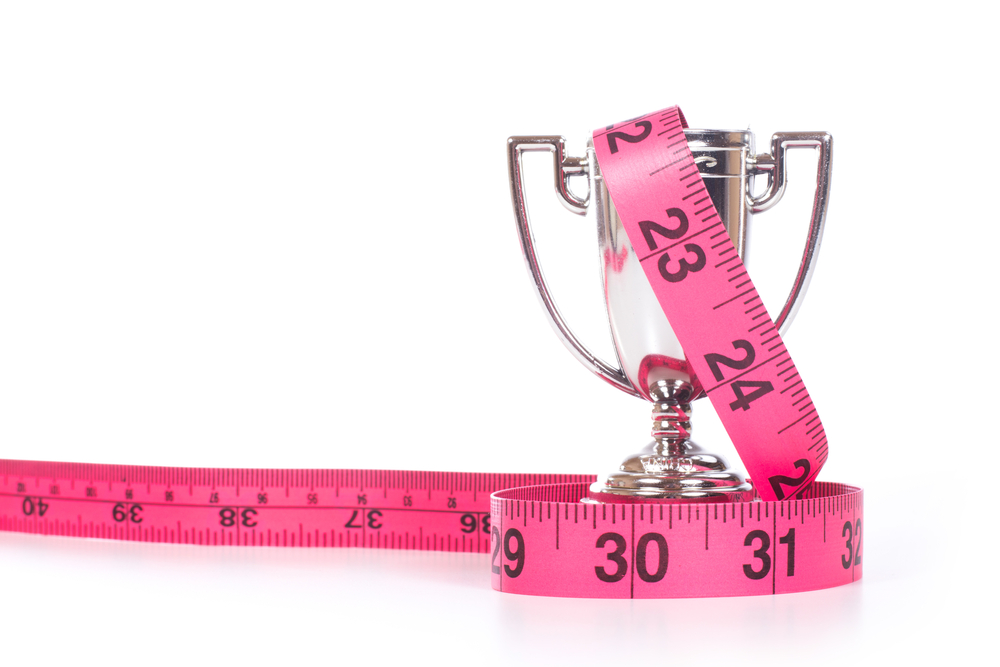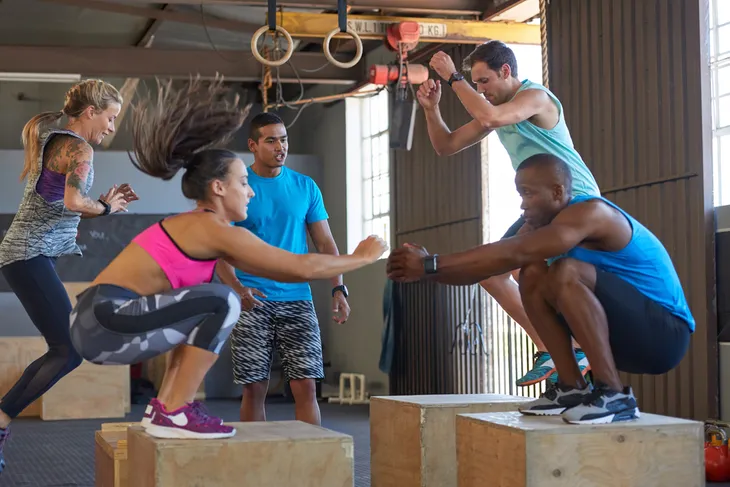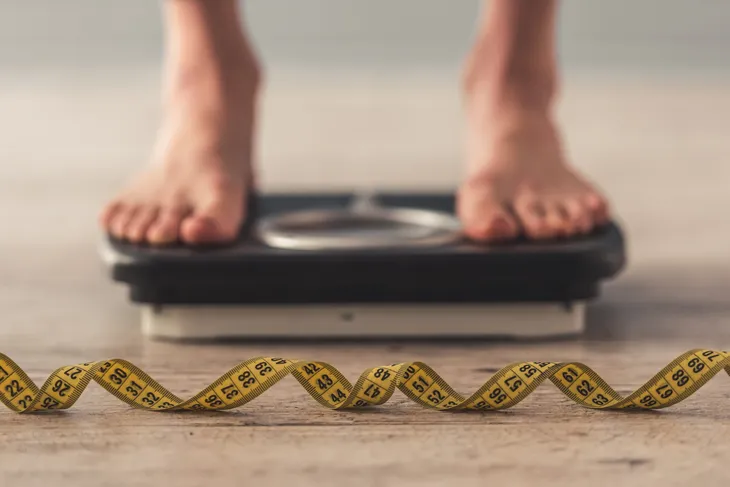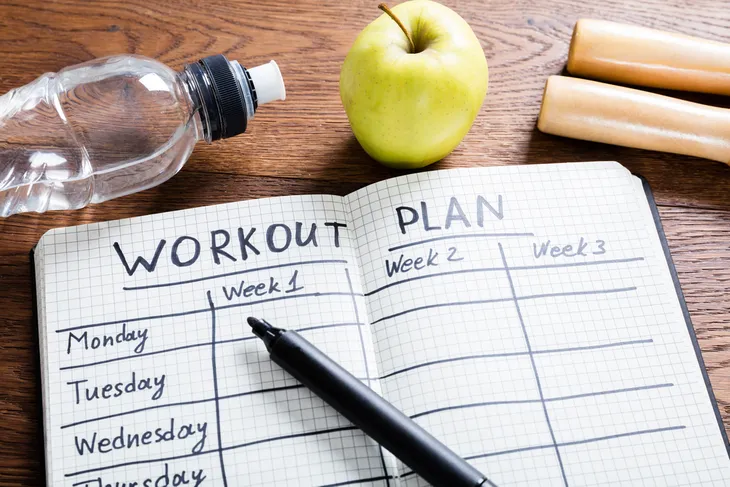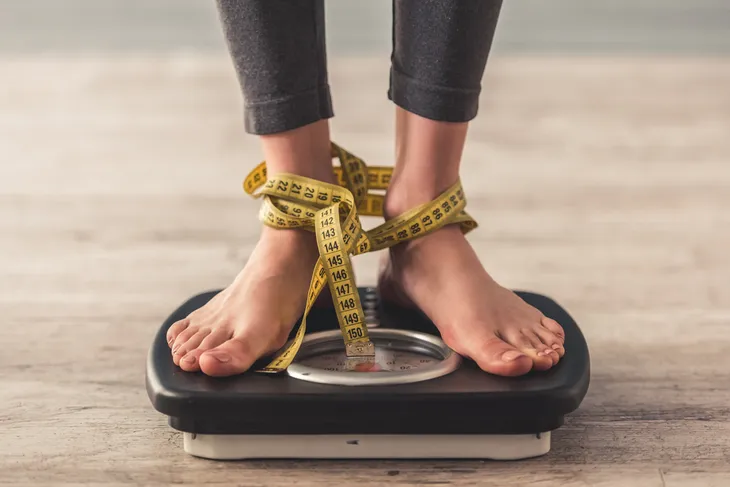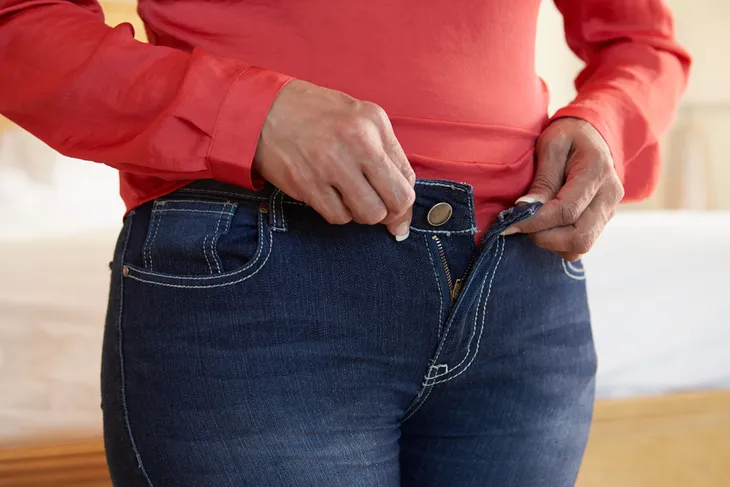From the “Biggest Loser” to “Celebrity Fit Club” weight loss challenges are becoming more and more popular in the media and within our own communities. At first glance, this appears to be a good thing; promoting health while offering prizes and notoriety to the biggest weight loser. It probably doesn’t come as a surprise that up to 95-percent of “losers” will regain all of their body fat over the first 5-years. In addition, competitions that offer cash and prizes can promote unsafe weight loss practices including eating and exercise disorders.
The following list provides some of the pros and cons of weight loss competitions with the hopes of considering both sides before participating in the race to reduce…
Pro: The Buddy System
One of the most impactful variables to ensure any behavior change is successful is the integrating the buddy system into our action plan. There is great power in groups and a feeling of accountability to others (and self) can be the key to change.
Weight loss competitions offer the benefit of social support and personal accountability for self and the team. The challenge each competitor will eventually have to face is what to do when the competition is over. It is one thing to lose weight while others congratulate and celebrate us, but another when we are doing it solo.
Con: Urge to Purge
Due to the designated time frame of weight loss competitions, the desire for quick fat loss sometimes overpowers the desire for healthy fat loss. In addition, competitions for fat loss can cause a preoccupation with food, exercise, and body weight.
From anorexia and bulimia to orthorexia (an unhealthy focus on healthy eating) and exercise addiction, weight loss competitions can serve as a catalyst for mental and physical illness. Even if the contestant doesn’t show signs of eating and exercise disorders, the average weight loss competitor will be making the necessary caloric restrictions to lose the weight as fast as possible.
Pro: Motivation
Many people decide to join or even instigate a weight loss competition as a means to help motivate behavior. Related to the idea of accountability to others, motivation to lose weight can be fueled by joining a group or competition to lose.
A sense of accountability has been noted as an important factor in the weight loss literature. The problem comes when we do not plan for this accountability for the long term. We tend to assume we will only need to account for our actions during the weight loss process…but what about after?
Con: A Focus on Body Weight
Research has suggested that a focus on weight loss leads to less weight loss success than a focus on health. For example, if we join the gym, do the suggested 30-minutes on the exercise machine, eat the suggested salad and not see the expected weight loss soon enough, chances are good we will jump (not fall) of that proverbial wagon.
Linda Bacon, author of Health at Every Size, examines the research on diet and exercise for weight loss. She states that weight loss strategies have yet to be shown to effectively sustain weight loss. Additionally, Bacon supports the positive relationship between self-acceptance and adopting healthy eating and exercise practices for the health of it. If we were to uncover the emotional motives behind much of the diet trends and weight loss competitions we would find shame, self-disgust, and other negative feelings about ourselves (fueled by society’s idea of beauty). Through body acceptance, healthy behaviors may come more easily (and, p.s., the weight may be lost overtime).
Pro: Education and Awareness
With many of the organized weight loss competitions education and awareness are enhanced through participation. Whether through the first weigh in and diet self-report or handouts and educational sessions on safe exercise and basic healthy eating, we do tend to learn a few good things through the process.
When receiving information about health, diet, and exercise it is important to understand where the information is coming from. Who is providing it, is it based upon research or testimonials, and how old are the messages are a few examples of questions to consider.
Con: Unrealistic and Temporary Changes
Weight loss competitions offer many positive benefits to the participant. One of which is the potential to lose a lot of weight fast. Anyone who has eliminated or reduced junk food while adding exercise to an otherwise sedentary lifestyle can attest to this. The weight loss is fast and has the tendency to cast a spell on the loser leading her to believe it is permanent. It’s exciting, it’s seductive, it’s sexy, and it’s dangerous.
Before embarking on any weight loss program the big question to ask is whether this change is something we can do for the rest of our lives. Can we keep it up on vacation? Can we do it through the thick of life’s dramas? Can we continue through the holidays, through stress, and at those times we are looking a hot fudge cream filled pastry in the eyes? If the answer is no….better rethink the strategy.
Pro: Progress
Weight loss competitions usually offer us the opportunity to join a group, follow a menu and exercise plan while charting our progress throughout the allotted time. Whether we engage in competition or not, this step by step approach to weight loss will most likely see a little progress. Record keeping in one of the most widely suggested strategies exercise psychologists suggest when making a positive change. Through charting our eating and exercise habits (along with sleep and emotions) we are able to get an idea of both progress and potential plateaus.
Now, more than ever, the “loser” is able to employ apps and other bio-surveillance tools to assist in recording progress. Unfortunately, like the changed behavior itself, record keeping soon becomes tedious and another thing to keep up. Overtime, this “record-fatigue” may get the best of us as we slowly forgo the tracking while slowly slipping back into old behaviors.
Con: Shame and Frustration
Just like the reality shows, weigh-ins can become an exercise in psychological warfare. What if, after all this hard work, the number doesn’t change? The emotional tapestry of shame, guilt, doubt, frustration, and even self-hate can begin to unwind when we step onto the scale and see no change.
The risk of jumping on that emotional eating roller-coaster becomes higher after experiencing shame, guilt, and self-disgust resulting in overeating (i.e. self-sabotage). Many people take an emotional (and physical beating) when participating is weight loss competitions and, overtime, may result in resorting back to old behaviors (or worse).
Pro: Hope
It could be debated that hope is a pro or a con when participating in weight loss competitions, programs, and the like. Hope is what keeps the diet and exercise industry alive, well, and making money hand over fist. Hope is what keeps the weight loser coming back for more abuse. Hope is what breathes life into any weight loss competition.
Even after numerous kicks at the weight loss can we tend to approach the latest trend in fat reduction as the final panacea we have been waiting for. This will be what we need to get motivated and lose the fat for good. This is the diet and exercise program for me! Unfortunately, the reality isn’t as rosy as the dream. That leads us to the final (and most impactful) con of them all…
Con: Gaining it All Back Again
The biggest, and most notable, con to participating in any competition to lose fat is the body’s determination to fill every fat cell we emptied during the race. After a significant fat loss, the brain begins to devise plans of attack to reclaim the fat lost (so to speak). From enhancing our hunger to craving those foods that will ensure our weight gain, the brain is clever (and oh so sneaky).
One study out of the University of Melbourne has found an increased level of appetite regulating hormones after significant weight has been lost. For this reason, and others, we need to consider the biology, psychology, and sociology of permanent weight loss after the process of losing the weight. By understanding the various determinants that relate to weight regain we may be able to lose the fat for good (and not for the next few months).
